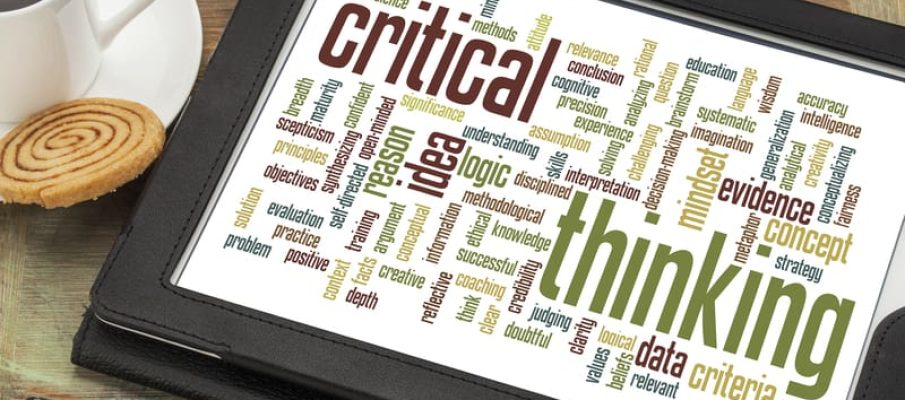We live in a rapidly changing world. New technological advances are made every day, and the internet makes it easy to access a wealth of information in a matter of minutes. Globalization and increased competition have led to changes in the workplace. To be successful, people must be able to acquire new skills, adapt quickly to change, and apply what they know in new and creative ways. They need to think critically.
According to Fisher (2001), a critical thinker must be able to do the following:
- Identify the elements of a reasoned case, especially reasons and conclusions
- Identify and evaluate assumptions
- Clarify and interpret expressions and ideas
- Judge the acceptability, especially the credibility, of claims
- Evaluate arguments of different kinds
- Analyze, evaluate, and produce explanations
- Analyze, evaluate, and make decisions
- Draw inferences
- Produce arguments
The skills included on this list are all fairly challenging and complex. They require careful investigation, analysis, judgment, and synthesis. Critical thinking takes effort! But not every decision or task requires that level of effort.
For instance, you generally don’t need to use critical thinking skills when brushing your teeth, driving to school, or choosing what to eat for lunch. It’s not necessary to use critical thinking when recalling a list of memorized facts or figures. It’s not even necessary to use critical thinking skills for more complex tasks, like balancing your checkbook. In order to solve math problems, you generally need to apply certain concrete rules. There’s rarely a need to investigate the context of the situation, the validity of opposing arguments, or the credibility of claims.
Critical thinking skills are needed whenever you’re faced with complex, ambiguous problems. For instance, you might use critical thinking skills to:
- Choose a profession or career path
- Determine whether or not a certain source of information is credible
- Help to resolve an argument between friends
The use of critical thinking skills can help you to cope with these types of important, complicated problems. Thinking critically can help you to consider both sides of an issue, examine the facts, ask the right questions, and arrive at a solid conclusion.
Fisher, A. (2001). Critical thinking: An introduction. Cambridge, UK: Cambridge University Press.







